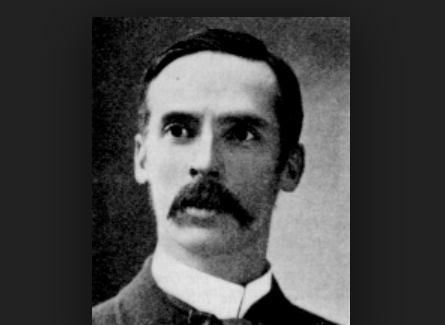This is a cross-post by James Snell
Keith Vaz, the Member of Parliament for Leicester East, has done something objectionable – morally, ethically, whatever you want to call it. And beyond personal taste, there’s the suggestion of real wrongdoing, and something resembling real moral decay hanging about his person. This particular characterisation could be made in reference to innumerable things the man has done. But his past is past; all that seems to matter right now are the contents of a tabloid tale or two.
Vaz has been accused by the Sunday Mirror of a litany of transgressions, ranging from the purely moral to the likely illegal; there is the suggestion of his procuring drugs for prostitutes and all that comes with that. I am not going to detail the fundaments of the story; you can read those, as many millions no doubt have done, in newspapers and on the internet.
What surprised me, as I read the results of the Mirror investigation, was the real inanity of the story at hand. These things are always terribly pedestrian, I suppose. But this was especially banal: people – even those in public life – have shady aspects to their characters. Still, the drug angle gives this particular piece of tabloid fare a more genuine connection to the public interest. There’s no point, therefore, in saying that it’s a non-story, or that those who reported on it should have let it slide. To do that is to misunderstand both the essentials of journalism and what the public wants to read.
That said, I was slightly amazed by my own ambivalence. To be honest, I felt rather conflicted about this whole thing.
I’ve never liked Vaz. He seems genuinely difficult to admire or even respect, and not just in a presentational way. Rather, he appears to be a person whose entire public persona is built upon the pursuit of something not immediately understandable: is it an unvarnished desire for fame, for example, which made him call Russell Brand – an inherently unserious person – to give evidence before the Home Affairs Select Committee on the fairly serious subject of drug rehabilitation?
Did his bizarre and self-regarding decision to greet Bulgarian and Romanian immigrants at the airport at the beginning of 2014 originate as an attempt to be considered noble, or was it an organic wish to appear welcoming? Was it a desire to be appreciated by his constituents which compelled Vaz to deck his office and person out in Leicester City garb when they won the Premier League last season, despite never having shown any interest in the club before?
Was all this just the hunting of publicity for its own sake, spurred on by the dictates of vanity? Or was there a deeper reason at work – something motivated by a sincere wish to do his best for the causes and people he believes in? With Vaz, that just seems rather unlikely.
But even after considering the massed events of a faintly tasteless career, this latest scandal seems, well, a bit much, really. Who cares about his sexual predilections? My day was worse for having read about them. Sexual impropriety is such a human failing, I thought; it’s not like he’s embezzled money, or done anything to compromise the safely of the realm. (There’s little point in trying a ‘who among us’ point here – especially for vulgar rhetorical purposes – but there is something to be said about how, even among public figures, we cannot expect all of them to be immune, and distinct, from the dissolute and the debauched.)
I must admit, though, that after the initial outpouring of pity, my heart hardened somewhat.
Vaz can still be ‘got’ for hypocrisy; that’s pretty clear cut. And for being duplicitous in general: that much is in evidence by any number of comments like that of Patrick Mercer, a fellow MP, who called the former ‘a crook of the first order’.
The full quote, as rendered in a report by the House of Commons Committee on Standards reads:
You’ve got some right bad boys there, you really have. … [Vaz is] a crook of the first order and you have to be careful because his name carries mixed reactions but I have never met an operator like him. … I mean it’s not always completely ethical but it’s stunning, he is an operator.
Mercer defended his comments during an investigation into his own person by relating that ‘[h]ere was a man [Vaz] who – pun – who was extremely cold, there was no warmth of character with this man. I found it impossible to form a relationship of any sort with him’.
It would be wrong to derive an entire character study from these two instances, which contains, after all, one man’s opinion. But here is another example, a dishonourable episode drawn from a trying time: the Rushdie affair – February 1989 to the present – where the novelist Salman Rushdie was condemned to death by a foreign and theocratic dictator, a leader whose name only held authority in Britain because of his ability to decree the rightful murder of a writer of fiction.
The role of Keith Vaz in this episode is particularly ignominious. First he rang up Rushdie to, in the latter’s telling, say ‘that what had happened was “appalling, absolutely appalling” and promised his “full support”.’ Then, after the weight of public opinion had been assessed and found ambiguous, Vaz reinvented himself not as a defender of the life and liberty, but rather as a vulgar rabble-rouser. ‘A few weeks later’, Rushdie writes in his memoir Joseph Anton, Vaz ‘was one of the main speakers at a demonstration against The Satanic Verses attended by over three thousand Muslims, and described that event as “one of the great days in the history of Islam and Great Britain”.’
If there’s anything to be criticised about Vaz – and there seems to be a lot – it’s this: a remarkable moral flexibility in the face of questions of extreme importance and simplicity. He was willing to whip up murderous sentiment against a novelist for no reason, it seems, other than the possibility of improving his own image. If his political career is ended by this scandal, let us hope that the story of that betrayal is not lost amid a haze of lurid details and contrarian defences of his character.


